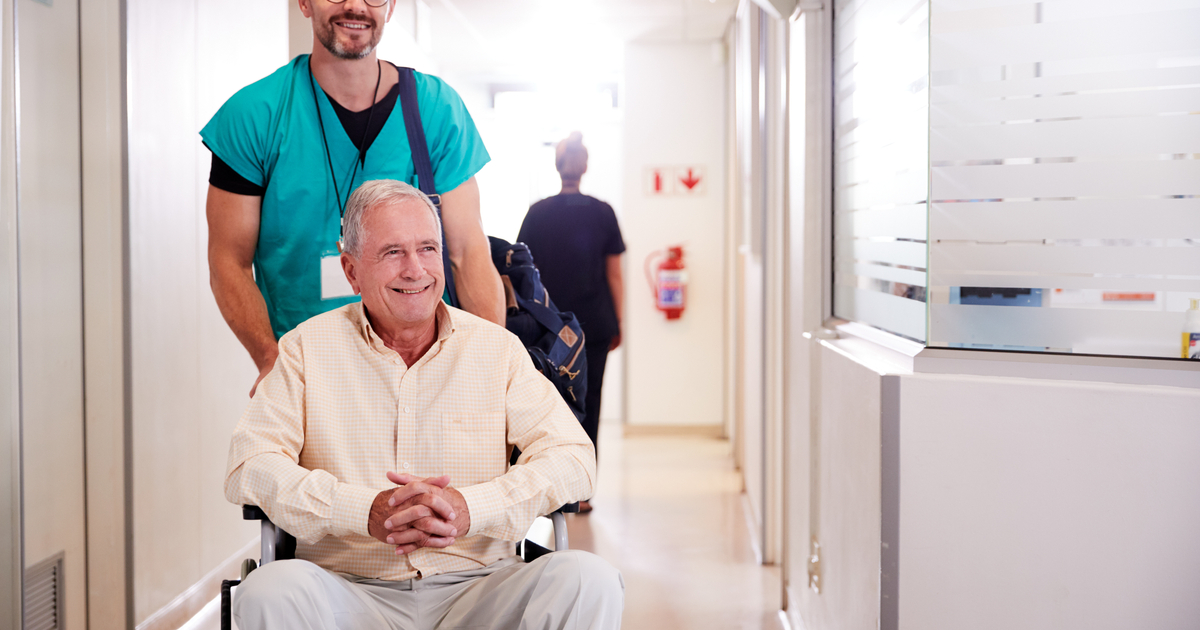After a lengthy hospital stay your elderly father is going to be discharged soon. Since dad’s planning to stay with you until he gets back on his feet, you’re getting a little nervous. Although bringing an aging loved one home from the hospital is a relief, it can also be stressful and complicated. Coordinating a senior’s follow-up care when they’re transitioning from hospital to home isn’t easy, but it is essential for their continued health and wellbeing. Here are some ways to ensure that your loved one’s recovery goes well.
Post-Hospitalization Concerns for Seniors
Being in an unfamiliar setting like the hospital takes a senior out of their normal routine and it’s certainly not the best place to rest. Mental and physical exhaustion resulting from a hospitalization can place an elderly person at risk for developing health complications.
In addition to those issues, here are some other post-hospitalization concerns you’ll need to address as an informal caregiver:
- Malnutrition. Seniors who are hospitalized often experience a loss of appetite and forgetfulness, both of which can place them at risk for malnutrition.
- Transportation. Depending on the significance of the illness or injury, arranging reliable transportation for before and after a hospital discharge may be necessary.
- Medication management. Medication mishaps are common in the elderly, especially for those who are trying to readjust to normal routines after a hospitalization.
- Deconditioning. After a lot of bed rest an aging body can quickly start to decondition as muscle strength weakens. This can be notably dangerous for seniors who live alone as their likelihood for falling rises.
Your Discharge Preparation Game Plan
Keeping a loved one safe and comfortable after being discharged from the hospital is possible when taking these steps:
Keep your emotions in check
Although it’s perfectly natural to be anxious, worried or scared as your loved one’s discharge date approaches, you won’t be able to think clearly when those emotions are clouding your judgement. Take a deep breath and focus on the task at hand. Then prepare yourself mentally to line up the best care possible before they come home.
Get a discharge plan in writing
Using the doctor’s orders as a reference a discharge planner from the hospital can sit down and discuss a care plan for your loved one. Get the discharge plan in writing and be sure that it includes these details:
- Where your loved one should go after leaving the hospital. Maybe it’s their own home, your home, a long-term care facility or elsewhere.
- Any follow-up medical care (home health visits, rehab, therapy, etc.) and treatments that are needed.
- A list of required medications, wound care supplies, durable medical equipment, dietary restrictions, etc.
- When your loved one should follow-up with their primary care doctor or specialist.
It’s also a good idea to personally review the discharge plan with a physician or nurse while repeating the instructions back to them.
Form a care team
Starting with your siblings, form a care team of trustworthy family members, neighbors and friends who can lend their time and talents once your loved one comes home. Based on your loved one’s condition some of the caregiving duties that may be needed include:
- Transportation to medical appointments and therapy sessions
- Scheduling follow-up appointments
- Coordinating medical insurance
- Personal hygiene like bathing, dressing and toileting
- Paying household bills
- Wound dressing changes
- Medication management
- Meals and feeding assistance
If you have any questions about the type of care your loved one will need consult with a geriatric care manager. Another reliable option would be adding a professional caregiver from a licensed homecare agency to your care team.
Relax. Adultcare Assistance Homecare has You Covered
Although caring for an aging loved one after a hospitalization is a labor of love, it can also be overwhelming. Put your mind at ease by contacting Adultcare Assistance Homecare (AAH). As a locally owned agency with a 20-year track record of success, our highly trained caregivers can step in and provide your family with the hospital-to-home support that’s needed. Our homecare services include respite care, companion care, medication reminders, senior transportation, light housekeeping and even 24-hour live-in assistance.
In fact, one of our professionals can even sit with your loved one at the hospital if you aren’t able to be there! To learn more about our award-winning services, or to get a FREE home care assessment for a senior in Phoenix, Sun City or Tucson, AZ, today, please visit AAH at: www.adultcareassistance.com.





